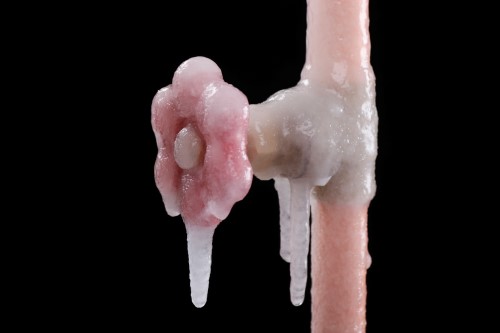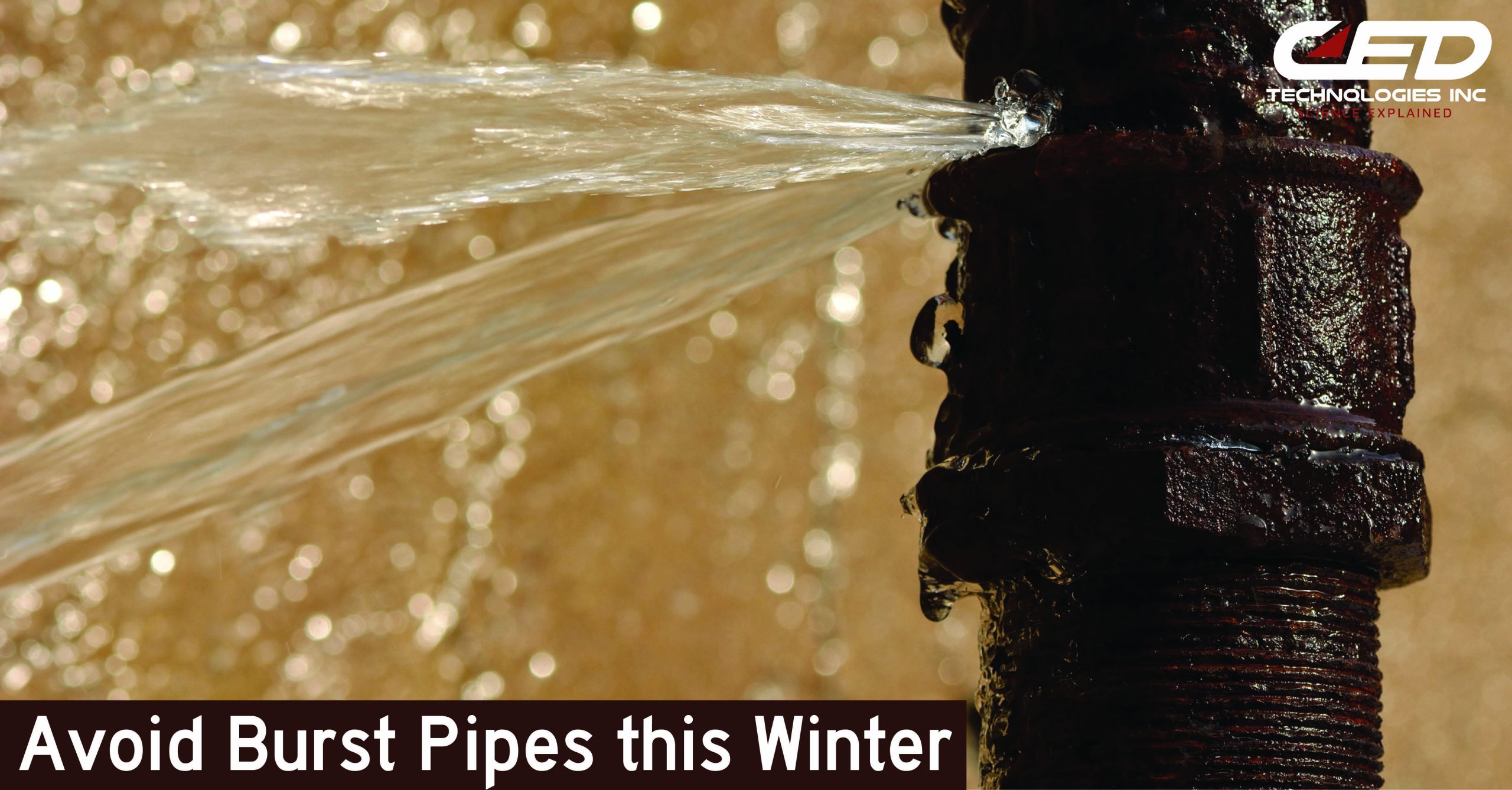Is it Spring yet? As we are well aware, many parts of the country are still frozen. This means frozen pipe claims will probably not slow down for some time.
In most cases, the water freeze leads to a pipe or fitting failure. Less often, the material science is the cause of failure. Let's look at the science behind each scenario.
Ice-related pipe bursts usually are a supply line problem. Drain lines certainly can freeze. But in theory, they are supposed to be devoid of water unless they are in use. Even if they do contain water, they usually are not completely full, which means that the combination of running water and space for expansion keeps them relatively safe from freeze-related bursting. They are still susceptible to ice related blockage and overflow. It's not the ice itself that breaks pipes. As the water freezes, the formed ice increases in volume inside the pipe and compresses the water trapped between the ice blockage and valves to the point where the pipe fails. This is why it is often recommended to let faucets drip when freezing is anticipated. A slightly opened faucet can help dissipate excess pressure.
Pinhole leaks in a pipe, on the other hand, are the result of a different mechanism and are formed in a couple of different ways. Internal corrosion of the pipe can occur due to age, water hardness, or even galvanic exchange. Further, copper pipes often are used to ground electrical systems. If a current is running through a pipe on a regular basis, pitting can occur as the current finds its way to the ground. Also, if the supply line runs through or in a concrete slab and is in contact with steel rebar, the pipes can prematurely corrode and pit due to galvanic incompatibility.
So, how do you pick your expert to help investigate the loss and be confident the associated costs are in line with the value of the claim? When you call a company that does forensic engineering, you should expect to discuss the following as they may pertain to your matter:
– A conflict check up front ensures no exclusion issues and waste of money as the claim matures into litigation
– A frank discussion on possible need for rapid response and timeline associated with inspection and report
– An understanding of what qualifications are needed – a professional engineer (P.E.) license could set your expert apart from others
– A discussion of whether other engineering disciplines may be required – in the frozen pipe example, material science may be needed in addition to mechanical engineering
– A reality check up front with a discussion and possible estimate of what the costs of investigation will be
– An understanding of need for possible destructive testing and associated protocol required
– If evidence is to be stored, which pieces will be needed, and will a proper chain of custody be utilized
– The quality control behind the expert's report – peer review
Featured Engineer:Brian Mills, P.E. Mechanical Engineer
Submit a case or claim online.
Contact a CED Engineer in you region.






